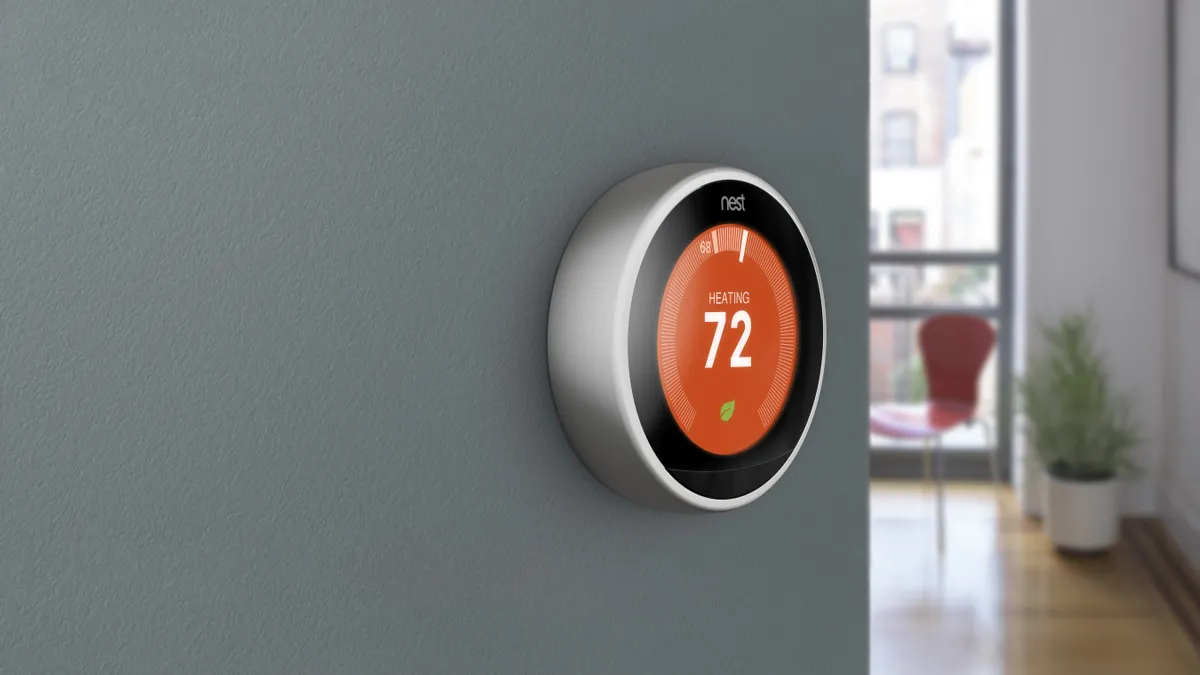Dive Brief:
- Two articles last week featured new thermostat offerings, including Nest's third generation "learning" device and Schneider Electric's wi-fi enabled Wiser Air, which can take into account weather forecasts.
- Recombu.com reports Nest's third generation thermostat is a sleeker, thinner version that now controls water heaters and radiators and has a larger screen for more accessible viewing.
- And Greentech Media is reporting on Schneider Electric's Wiser Air, following two years of retooling the device to focus on consumers and their experience, rather than the utility side.
Dive Insight:
The home energy management space has been a challenge for utilities and technology developers: How do you get consumers to care about a device they mostly want to ignore? But after some initial bumps, the home energy management (HEM) market is beginning to grow rapidly. In fact, earlier this year, Manifest Mind predicted the HEM market to reach an annual value of $2.2 billion in North America by 2022, more than doubling the industry's value today.
And last year, a report from Navigant found global revenue from HEM products and services was expected to grow from $846 million annually in 2013 to $2.4 billion in 2023.
To that, a pair of articles last week highlighted new thermostat offerings that are engaging consumers and helping utilities manage peak demand. Schneider Electric has unveiled its Wiser Air thermostat, which can interface with smart meters and other devices; the company spent two years retooling the thermostat after a utility-focused device developed years earlier failed to gain much traction.
And Recombu.com has a review of Nest's third generation device, which is now just barely over an inch in thickness (compared to the "chubby," as the site puts it, 1.26-inch former model). The newest of Nest's offerings, it was released in Europe last month and has several new innovations including, specific to customers on the other side of the ocean, hot water heating and boiler control.
“Millions of Nest homes around the world have saved approximately four billion kilowatt hours of energy compared to what they would have used if they’d left their thermostats at a consistent temperature, Lionel Paillet, general manager of Europe for Nest, said in a statement. "We are continuing to expand our presence in Europe – the 3rd generation Nest Thermostat will be available through thousands of retail locations, professional distributors, and directly through Nest Pro installers, and at a discount or at no cost at all through energy partners.”















